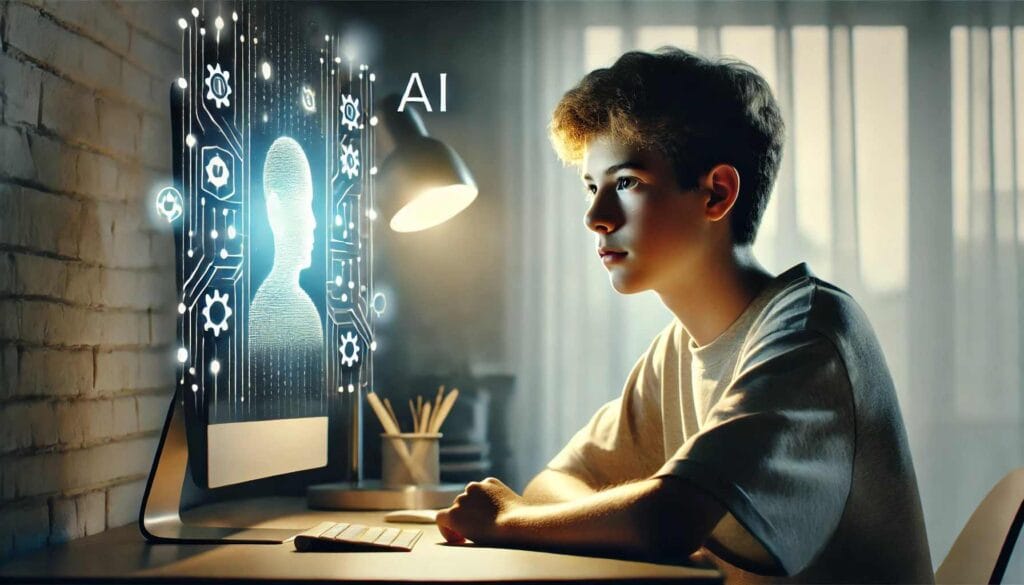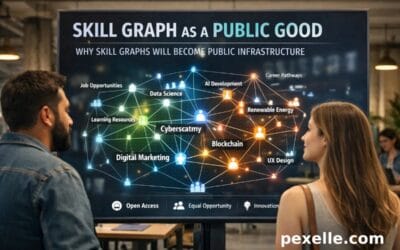The Impact of Artificial Intelligence on Teenagers: A Double-Edged Sword

Artificial Intelligence (AI) is no longer a distant future concept; it’s embedded in our daily routines, shaping how we learn, communicate, and interact. For teenagers, the influence of AI is especially profound, bringing both opportunities and challenges. Understanding this impact is crucial as the next generation grows up immersed in AI-driven experiences.
1. Educational Transformation
AI is revolutionizing education, offering personalized learning experiences that cater to each student’s pace and style. Advanced algorithms analyze students’ strengths and weaknesses, providing customized lessons and adaptive tests. Teenagers can access a wealth of resources and get instant feedback, fostering self-paced learning.
However, this advancement also has drawbacks. Overreliance on AI for education may hinder critical thinking and problem-solving skills. The essence of traditional learning, with human interaction and the ability to question, could be lost. Balancing AI tools with real-world teaching remains a challenge for educators.
2. Social Dynamics and Communication
AI-powered platforms, like chatbots and social media algorithms, are reshaping how teenagers communicate. On one hand, AI can connect them with people worldwide, breaking language and cultural barriers. Social platforms analyze interests to suggest content, making experiences more relevant and engaging.
Yet, the downside is significant. AI algorithms often prioritize content that maximizes engagement, which can lead to unhealthy comparisons, mental health issues, and even social isolation. The quest for validation through likes and comments has become a new-age struggle. Teenagers may feel pressured to portray a perfect life online, causing anxiety and a distorted sense of self-worth.
3. Career Aspirations and Skills Development
AI is opening new doors in fields like data science, robotics, and machine learning. For tech-savvy teenagers, these opportunities are exciting and promising. Schools are beginning to introduce AI-related curricula to prepare them for future careers in AI-driven industries.
Nevertheless, the rapid advancement of AI also raises questions about job security. As automation takes over certain roles, the job market will look vastly different. Teenagers need to be flexible and continuously learn new skills. The traditional career pathways their parents followed may no longer be relevant, making adaptability a key trait.
4. Privacy and Security Concerns
Growing up in the digital age, teenagers share a significant amount of personal data online. AI collects and analyzes this data to offer personalized recommendations, but it comes at a cost: privacy. Many teenagers aren’t fully aware of the implications of data sharing and how companies use their information.
The ethical questions surrounding AI and data security are critical. Parents and educators must teach teenagers about the importance of digital privacy and responsible online behavior. It’s a fine line between enjoying AI’s conveniences and protecting oneself from potential threats.
5. Ethical and Philosophical Challenges
Teenagers are forming their identities and worldviews. Exposure to AI raises ethical and philosophical questions about the role of technology in society. Issues like AI bias, job displacement, and the moral responsibilities of creators are topics that the younger generation must grapple with.
Encouraging teenagers to think critically about AI and its implications will empower them to be responsible creators and consumers of technology. Discussions about ethics in AI should be integrated into classrooms and households, shaping a generation that values thoughtful, informed decision-making.
Conclusion
AI’s impact on teenagers is multifaceted, offering both exciting possibilities and significant challenges. While it enhances education, broadens social connections, and opens career paths, it also brings risks like privacy concerns and mental health struggles. Striking a balance is key.
As AI continues to evolve, so will its influence on the younger generation. Preparing teenagers to navigate this AI-driven world with critical thinking, ethical awareness, and adaptability is our collective responsibility. The future of AI lies in the hands of today’s youth, and empowering them with the right tools and mindset will make all the difference.
Source : Medium.com





The elegance in your writing is apparent in every line, creating a sense of harmony that lingers.